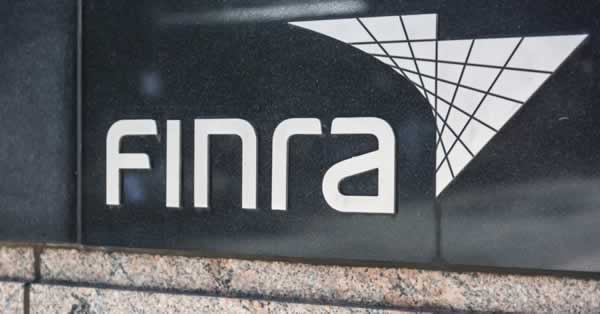This week, the Financial Industry Regulatory Authority (FINRA) emphasized the significance of maintaining accurate client records by suspending a broker accused of misrepresenting customer call details.
Derek Rehill, a 24-year industry veteran, received a two-month suspension for allegedly breaching FINRA’s Rule 2010, which mandates brokers to adhere to “high standards.” Rehill is accused of recording incorrect details from four customer calls, as stated in a settlement letter finalized on Monday.
Between 2019 and 2020, Rehill allegedly created notes that inaccurately represented clients’ investment goals and risk tolerances, according to FINRA. While working at Joseph Stone Capital, Rehill claimed that three clients had confirmed a “speculative” risk tolerance when they had not.
In one instance, a client requested a long-term investment strategy rather than frequent buying and selling. In another case, Rehill failed to inquire about a client’s risk tolerance, as per FINRA.
Rehill, who is currently registered with New York-based VCS Venture Securities, was unavailable for immediate comment. A spokesperson for VCS declined to comment on the matter.
FINRA did not disclose how the note-taking discrepancies were discovered or if they possessed recordings to substantiate the conversations. In September, FINRA ordered Joseph Stone to pay $1 million in restitution to clients whose accounts were excessively traded.
Joseph Stone had instructed Rehill to periodically verify objectives for customer accounts that the company considered “actively traded.” Rehill left the firm voluntarily in 2021, as per the settlement.
Due to Rehill’s demonstrated inability to pay, FINRA did not impose any monetary sanctions, according to the settlement.
Rehill first registered as a broker in 1998 at Gene Gaines Berland Inc. and worked at 12 different firms, including one that was later expelled from the industry, before joining Joseph Stone in 2016. BrokerCheck reveals that firms have been increasing customer documentation requirements in response to heightened regulatory scrutiny and as a means of protecting themselves against customer complaints.
How does FINRA regulate stock brokers?
FINRA, short for the Financial Industry Regulatory Authority, is like a watchdog for the US securities industry. Its job is to keep an eye on brokerage firms and stockbrokers to make sure they’re playing by the rules and treating investors fairly. Here’s how FINRA does its thing:
- Registration: To work as a stockbroker, you’ve got to pass some exams and register with FINRA. This helps make sure brokers know their stuff and can do their job right.
- Licensing: After passing the exams, stockbrokers need a license to work in their state. This usually means background checks, fingerprinting, and other steps to show they’re legit.
- Rules and standards: FINRA has a bunch of rules its members need to follow. These rules cover everything from advertising and talking to the public to making investment recommendations and handling people’s money.
- Continuing education: Stockbrokers can’t just coast after they get their license. They need to keep learning through continuing education programs. This helps them stay up-to-date with any changes in the industry.
- Monitoring and surveillance: FINRA keeps a close eye on what its members are doing. They use high-tech tools and old-fashioned human oversight to watch for any signs of trouble or rule-breaking.
- Examinations and audits: Every now and then, FINRA will check in on its member firms to make sure they’re following the rules. These check-ups can be routine or focused on specific concerns.
- Enforcement and discipline: If a stockbroker or firm breaks the rules, FINRA doesn’t mess around. They can issue fines, suspend brokers, or even kick them out of the industry. But the SEC (Securities and Exchange Commission) has the final say on any punishments.
- Investor education and protection: FINRA wants investors to know what’s up, so they offer resources, publications, and outreach programs. They also run BrokerCheck, a free online tool that lets people dig into the background and disciplinary history of brokers and firms.
In short, FINRA’s role is to keep the US securities industry in check, making sure stockbrokers and firms are following the rules so that investors are protected and everything stays on the up-and-up.


